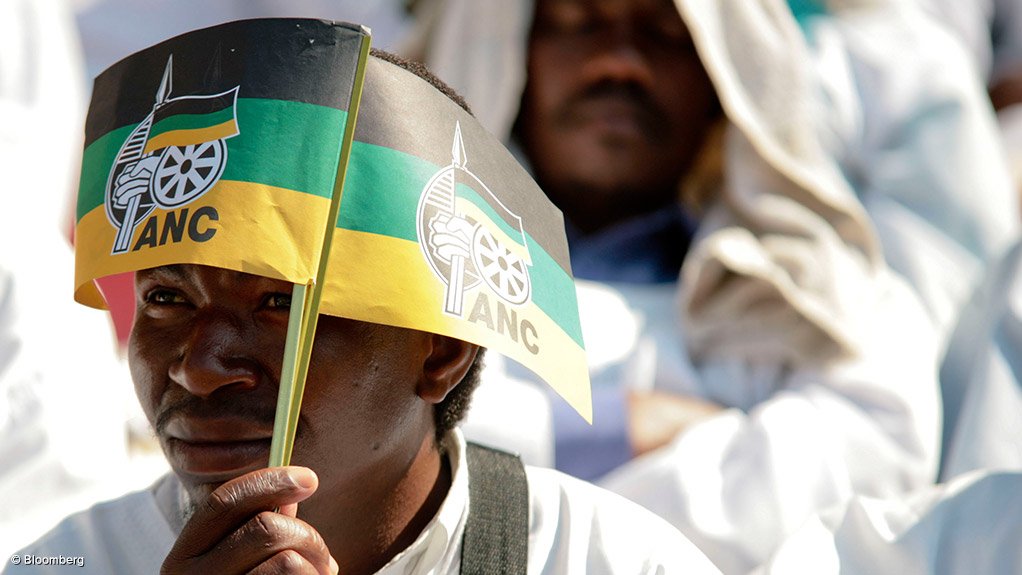Former South African Revenue Service deputy commissioner Ivan Pillay has said that the African National Congress (ANC) is no longer seen as a reliable organisation for realising the aspirations of millions who suffered under apartheid.
Pillay was speaking at the annual Helen Suzman memorial lecture in Johannesburg, where he said the party was no longer closely identified as such by the poor and the marginalised.
“There is distrust of the ANC, even among its followers, who, although they may vote for the organisation, do not believe or trust its promises,” he said.
He added that there was no other party that had won substantial trust, yet.
He highlighted that surveys showed that the strongest two alternatives - the Democratic Alliance and Economic Freedom Fighters – also evoke significant levels of distrust.
“While other electoral alternatives have emerged, there is no evidence of a party that can win an election outright or obtain more votes than the ANC, or establish a stable coalition government. There is no party with a plan to address inequality, hunger, unemployment and the breakdown of basic services. There is no party that can be relied on to provide the bare minimum of conditions for a decent life for all,” he explained.
He said there was a crisis of representation which primarily affected the ANC, as it was no longer regarded as a “credible, trusted and honourable force.”
Pillay said the distrust and cynicism towards the ANC extended to the country’s institutions of representative democracy such as Parliament, provincial legislatures and municipalities, which he said had weakened oversight functions.
Politicians have been shown to place more weight on obligations to their political parties than to citizens, he said, and added that communities were often left to fend for themselves.
He said there was currently no viable pathway for resolving problems through government institutions, which were hamstrung by a low quality of democracy.
“The crisis worsens as voters stay away or do not even register to vote. And there are additional potentially troubling signs, especially the withdrawal of the youth from the political landscape, and the fact that unemployment is particularly high amongst the youth, even amongst those with matric or tertiary qualifications,” he explained.
He believes there is an absence of leadership from business, labour and government.
STATE CORRUPTION
Meanwhile, Pillay highlighted that State systems seemed open to manipulation at multiple points, resulting in overpricing of inputs and supplies, payments for non-existent supplies, poor-quality outputs and sometimes no service delivery to citizens.
He said many State institutions were no longer appropriately designed, capacitated and managed.
Professionals were driven out by senior politicians and public servants who were and are dismissive of the need for deep technical knowledge of the core business and of operations management, he explained, while noting that State institutions hired and promoted “generalists who report to other generalists”.
“Many of our managers and leaders are not systemic. We are mainly event- and transaction-driven interventionists. By continuous non-systemic actions and instructions, we invariably break existing systems. There is little analysis, generation of options, objective selection of these options, nor sufficient design and realistic planning. We usually just make announcements. When that does not succeed – and it often does not, because we have broken the delivery mechanisms – we make even more announcements. From land distribution to fighting crime, the more we fail, the louder and more strident we become,” he added.
He highlighted that such managers and leaders had a ripple effect on each layer of management, causing subordinate managers to operate at several levels below what was required.
That behaviour over a prolonged period causes all levels of authority to become transactional.
The result is fragmentation and friction in the production, management and quality of management systems, he said.
EMAIL THIS ARTICLE SAVE THIS ARTICLE ARTICLE ENQUIRY
To subscribe email subscriptions@creamermedia.co.za or click here
To advertise email advertising@creamermedia.co.za or click here











